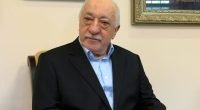Keyword: Education

‘Don’t link Thai schools with terrorists’
Thailand’s foreign ministry has cautioned against any rush to link four Thailand-based schools to a terrorist organization just because they have a handful of foreign shareholders. “We have been in touch with the embassy to request legally recognised and reliable evidence. But we have not received any additional information to date,” Thai foreign ministry spokesman Sek Wannamethee, said yesterday.

In Netherlans court orders parents to stop calling De Roos primary a terrorist school
Judges in Haarlem have banned four mothers from calling an Islamic primary school in Zaanstad a ‘terrorist’ school. People who press ahead with saying the school supports terrorism face a fine of €1,000 with a maximum of €10,000.

Success stories of Kenya’s Light Academies’ beaming alumni
The Turkish schools were recently steeped in controversy after the Turkish government linked to being part of activities of self-exiled clergy Fethullah Gulen whose global network is accused by the Ankara government for fomenting terrorism, and money laundering.

Turkey: Effort to Force Closure of Gülen Schools Falling Flat in Eurasia
The situation in Georgia illustrates the challenge for Turkish diplomats. A few days after the July 15 coup attempt, a translation of a TV interview began circulating that featured Yasin Temizkan, Turkey’s consul in the city of Batumi. In the interview, Temizkan urged the Georgian government to close the local Refaiddin Şahin Friendship School, a private institution considered part of the Gülen network. The justification, Temizkan said, was that the school was “serving terrorist groups.”

U.S. schools are indirectly linked to preacher, often well-regarded
Even before the revolt, this network was already in Erdogan’s sights. Critics say Gulen gets payments from supporters doing contract work on the schools or from “donations” made by Turkish instructors brought to the U.S. on special visas to teach at them, charges he has rejected. Several charter chains thought to be related to the Gulen movement have been investigated by local authorities for misusing taxpayer dollars, but the inquiries haven’t resulted in charges of wrong doing.

Hate Crime: Lists of “Gulen pupils” circulating in Amsterdam
Lists are circulating in Amsterdam containing the names of Turkish students in Amsterdam schools, with details on who supports Fethullah Gulen and Who Supports Turkish president Tayyip Erdogan. About 150 primary school students did not show up for school this week due to “intimidation and bullying” related to tensions in the Turkish community. The municipality deployed extra education inspectors to visit parents who are keeping their children home from school.

U.S. State Department, Citing Security, Suspends [Fulbright] Teaching Program in Turkey
In the wake of the coup attempt, President Recep Tayyip Erdogan of Turkey has conducted widespread purges of perceived adversaries. As a result, every university dean in Turkey was forced to resign. Some experts have raised questions about whether the university system will be able to function. The ripple effects to American academics are just starting to emerge.

How the fallout from Turkey’s coup attempt has been felt in South Africa
In the late evening of Friday, July 15, word spread across the world that a coup was under way in Turkey. The president was missing, the military announced it had taken control of the country, and a few hours later, in the early hours Saturday morning, the coup was over.

As Gulen movement contracts in Africa, worry over who will fill the vacuum
Abdallah Kheri, who in Kenya heads the Islamic Research and Education Trust, worries that shuttering Gulen schools and other institutions could leave a vacuum that the so-called Islamic State will seek to fill. “Closing down the institutions would definitely grant gains to the fundamentalists,” he said. In Kenya, the Rev. Wilybard Lagho, Mombasa Roman Catholic diocese vicar general, said he would lament the demise of Gulen schools.

Zaman school [in Cambodia] resists call for closure
Zaman school officials and parents yesterday urged the Cambodian government not to shutter the schools as the Turkish Ambassador to Cambodia Ilhan Tug has requested, saying students will ultimately suffer. Officials would also need to consider legal and administrative procedures, and so far, the schools have not violated any Cambodian law or regulation, he said.






















